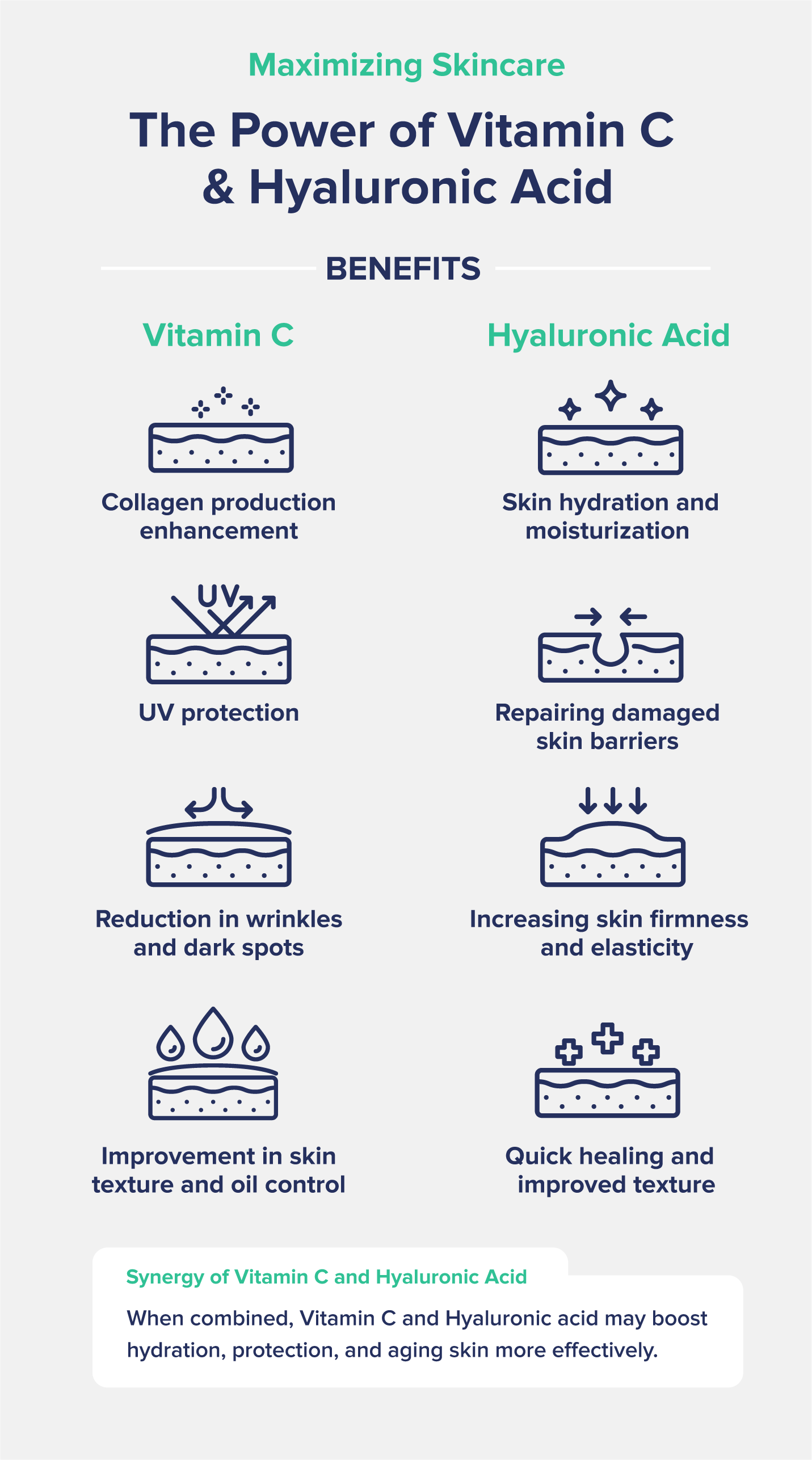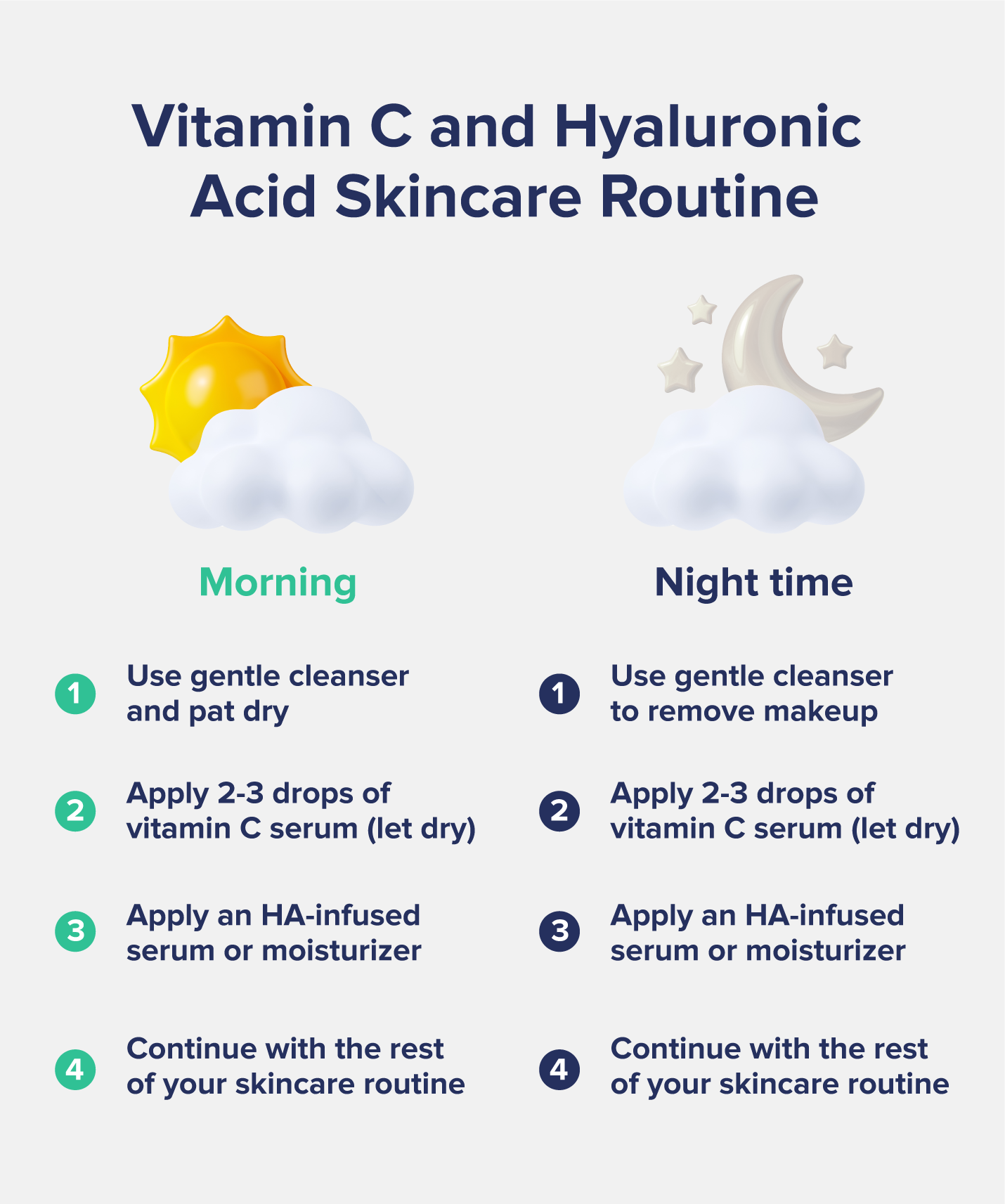Try our favorite, clean protein powder: See our top pick →
Try our favorite, clean protein powder: See our top pick →
This post contains links through which we may earn a small commission should you make a purchase from a brand. This in no way affects our ability to objectively critique the products and brands we review.
Evidence Based Research To fulfill our commitment to bringing our audience accurate and insightful content, our expert writers and medical reviewers rely on carefully curated research.
Read Our Editorial Policy
It might be a funny concept to wrap your brain around, but our skin is actually the biggest and most important organ in our entire body.
It protects us from the elements, regulates our body temperature, can tell us when something is wrong within our bodies, defends against harmful bacteria and pathogens, and allows us to connect with the world around us through touch and feel.
That’s why it’s so important to take care of it by protecting it as much as possible and preventing damage.
But nobody’s perfect, right? We forget our sunscreen and get sunburns; we bump into stuff; we cut ourselves while chopping onions, etc. There are also unavoidable factors like weather and temperature that can dry it out even further.
What if we told you there’s a superb combination of topical serums that can actually help prevent and even reverse that damage?
If that perked your ears up, we’d like to introduce you to our good friends––vitamin C (ascorbic acid) and hyaluronic acid (HA).
In this article, we’ll explain exactly why these two topicals belong in your skincare arsenal, what they do, and the best ways to incorporate them into your routine.
As skin ages and accumulates sun damage, we tend to get dark spots, patches of dry skin, and wrinkles.

Adding both hyaluronic acid serum and topical vitamin C to your beauty routine can boost collagen production, repair your skin barrier, and increase skin hydration.
Ultimately, this can lead to better and brighter skin tone, reduce the appearance of skin aging, and even improve wound healing from old acne scars.
Have sensitive skin? In high concentrations, vitamin C can be a bit harsh for sensitive skin. However, when combined with an HA serum, the skin is better protected, and you can get the benefits of vitamin C without any redness or irritation.
Of all the vitamins and nutrients our bodies need, vitamin C is among the most beneficial for our skin health and appearance and is the perfect way to heal the damage it can accumulate over the years.
That’s because vitamin C helps our bodies produce collagen and synthesize it from the foods we eat.
Collagen is the protein structure found in our skin, nails, and hair, as well as our muscles and organs.
While vitamin C is great to take as a supplement, where it really shines is when it’s applied to the skin as a serum.
Vitamin C serum can:
Though its name would suggest otherwise, hyaluronic acid does not have a chemical exfoliant effect such as other skincare acids like glycolic acid, lactic acid, salicylic acid, etc.
Instead, hyaluronic acid is a group of sugar molecules that supports skin hydration by lubricating our body’s connective tissues––a.k.a. the skin.
However, as we age and are exposed to certain environmental factors––such as air pollution––our natural levels of hyaluronic acid decline.
We can counteract this natural decline through topical application of hyaluronic acid.
The acid actually attracts and binds to water molecules in the skin, increasing the water content and thereby helping plump the skin and reduce the appearance of fine lines and wrinkles.
Hyaluronic acid is also excellent at hydrating skin that has a damaged moisture barrier.
When our skin has a compromised barrier, it can become dry and more vulnerable to damage from the sun or other environmental factors.
Applying an HA serum can help reverse this damage and give us a more “glowy,” hydrated appearance.
In summary, hyaluronic acid:
Yes! In fact, it’s even recommended.
This is because hyaluronic acid and vitamin C each have elements the other lacks. So, when they are used together, their overall effectiveness is boosted.
For example, though vitamin C is great for the skin, it can dry it out when used in large amounts or if it’s a high concentration of vitamin C.
Hyaluronic acid can help soothe this dryness and irritation, reducing the negative impacts of the vitamin C serum and allowing it to pack a bigger, more beneficial punch.
Both of these topicals also have anti-aging properties, so when used in tandem, their effectiveness is also increased.
Before applying or combining any topical skincare, you should first do a patch test.
To perform a patch test, apply the product to a small area of skin (either on the inside of your arm or the inner crease of your elbow). Allow this patch to remain on the skin for the amount of time indicated in the product’s directions.
So, for example, a serum or moisturizer will remain on the skin and not be washed off until you next take a shower, whereas a cleanser should be applied for five minutes and then rinsed off.
A patch test will determine if your skin can handle the topical serum and retain any irritation to just a small area as opposed to your entire face.
Once you’ve determined your tolerance for these products, you can then add them to your skincare regimen.
Vitamin C and hyaluronic acid make a great pair because they can both be applied on top of each other in the AM and PM.
For your morning routine, apply a few drops of your vitamin C serum on clean, dry skin. Allow the serum to dry completely before moving on to the next step.
You can either apply a hyaluronic acid serum or an HA-infused moisturizer on top of the vitamin C serum.
Continue with the rest of your skincare or makeup routine as normal.
For your nighttime application, you can do the exact same process or use a heavier moisturizer for the evening to keep skin protected and hydrated overnight.
If you typically use other products with your skincare routine, consider switching them off every other day or every three days since some products may not go well with vitamin C.
Typically, you should avoid combining vitamin C with any acids considered chemical exfoliants such as beta-hydroxy acids (BHA’s––Tropic Acid, Betaine Salicylate, Salix Acid), alpha-hydroxy acids (AHA’s––Lactic Acid, Malic Acid, Glycolic Acid, Citric Acid, Tartaric Acid), salicylic acid, benzoyl peroxide, and retinol.
If you apply these in combination with a vitamin C serum, it can cause excess irritation to your skin or cancel out the positive benefits of the product.
Other products, such as these gentle, all-natural toners or face oils, are okay to add to your routine alongside vitamin C and HA products. Specifically, we recommend The Organic Skin Co products!

Both vitamin C and hyaluronic acid have benefits for the skin. Vitamin C is great for repairing and preventing sun damage, reducing the appearance of wrinkles, and generally improving the skin’s appearance (tone, texture, redness). Hyaluronic acid is good for all skin types but especially those with sensitive skin or skin in need of a hydration boost. HA serums and moisturizers help the skin hold onto more moisture, thereby increasing the plumpness of skin, reducing irritation, and improving the appearance of fine lines and wrinkles.
Vitamin C serum can be used in the morning or at night. To get the most out of vitamin C it’s best to apply it consistently in the AM and PM. However, if you have other products you’d like to use for other skin problems (such as retinol) you could opt to use vitamin C in the morning since it provides some additional protection from damaging UV rays and then use your other products in the evening.
Yes! In fact, it’s recommended to mix these two products together since they both offer benefits that the other lacks, creating a harmonious balance between the two. Vitamin C is great for improving the texture of your skin, reducing the production of melanin in the skin that can lead to dark spots, speeding up skin healing, and preventing sun damage. However, it can be a bit drying and irritating, especially in large amounts and for those with sensitive skin. Hyaluronic acid can protect against this by adding additional hydration to the skin and creating a moisture barrier that can prevent this irritation.
Subscribe now and never miss anything about the topics important to you and your health.